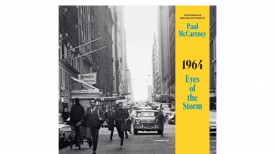'The House on Mango Street' by Sandra Cisneros Book Review: Exploring the Tapestry of Identity and Community
"The House on Mango Street," a story in the center of Chicago, is crafted by Sandra Cisneros with various cultural Latino colors. This work captures young girls' lives - vividly portrayed by Esperanza Cordero - as they mature amidst urban struggles. These vignettes weave a narrative where Esperanza grapples with finding her place and defining herself.
Readers worldwide have lauded this coming-of-age story for its depth and memorable characters, who stay with you long after turning the final page. Cisneros tackles themes like the power of storytelling and self-discovery in writing that rivals Toni Morrison's artistry and Sinclair Lewis's insight. Cisneros' book stands tall as a testament to heritage pride; it insists we cling to hope despite life's trials.
The Author
Cisneros was born in Chicago in 1954. Fame found her through vivid portrayals of Mexican American existence. She attended Loyola University and the prestigious University of Iowa Writers' Workshop; these institutions were crucibles where she honed insights into Hispanic roots alongside women's might.
Cisneros' scholarly pursuits molded a potent voice that resonates on topics such as Hispanic identity within America and the ascent of women. Her debut, "The House on Mango Street" (1983), garnered acclaim for its youthful defiance and vivid portrayal of girlhood struggles. Cisneros delved into poetry with works and tackled diversity in children's literature.
Uncovering the Power of Representation
An article by Nut Free Nerd said that the book's significance becomes apparent as readers delve into its themes and structure. Cisneros' introduction, detailing her motivation for writing, struck a chord with the reviewer, highlighting the power of representation.
The reviewer noted that the novel's structure, balancing between poetry and prose, offers a unique reading experience. Meanwhile, Cisneros's effortless writing style captivates with its honesty and authenticity. The story, universal and specific to Mexican American childhood experiences, resonated with the reviewer with humor, warmth, and poignancy.
Central to it all is Esperanza, the protagonist, whose journey mirrors the struggles of many marginalized individuals. Through her perspective, Cisneros humanizes Mexican American characters, challenging societal stereotypes. The reviewer regretted not reading the book sooner and urged others to experience its richness and depth firsthand, emphasizing its relevance and emotional impact.
READ ALSO: Book Review: Notes for the Children and the Power to Persevere
Navigating Complexity
According to a review by Devon Trevarrow Flaherty, the book's aspects were confusing, particularly the passage of time and the age of the protagonist, Esperanza. The reviewer struggled to connect with the supporting characters due to limited interaction. Despite this, they appreciated the book's unique style and beautiful language.
The reviewer stated that the story, centered on a Chicano girl's experiences in a poor Latino suburb of Chicago, highlights vulnerability and the quest for identity. While the reviewer did not love the book as much as expected, they acknowledged its relevance and intended to use excerpts in teaching.
Although they occasionally felt it veered into cheesiness, the reviewer recommended it overall, appreciating its depiction of life's challenges and the protagonist's journey toward self-protection in a harsh world.
Realism and Symbolism
According to an article in Thoughts & Whatnots, the book's promise of a realistic portrayal of Latino community challenges captivated the reviewer. Sandra Cisneros's poetic writing style shines through the prose, structured as vignettes about a Chicana girl in Chicago.
However, the reviewer noted that the lack of a traditional plot and more profound character development left the reviewer with mixed feelings. Despite its abstract nature and metaphor-heavy approach, the book offers thought-provoking insights into gender roles, poverty, and freedom, particularly for young adult readers.
While it may not fulfill the expectations of a cohesive storyline, its format facilitates engaging discussions. The book leaves a lasting message of hope, echoing the protagonist's name, Esperanza.
Conclusion
In summary, the book is praised for its detailed depiction of Chicano life in Chicago. It also presents a moving examination of identity and community. The book encourages readers to explore themes of perseverance and self-discovery with its endearing characters and narrative.
It continues to be a timeless example of the value of accepting one's heritage and the influence of representation. Do not pass up the chance to personally encounter the depth and richness of this contemporary classic.
RELATED ARTICLE: Exploring the Complexities of Transience: A Review of 'The Lodgers' by Holly Pester
© 2023 Books & Review All rights reserved.
Popular Now
1
Books to Read After 'Fourth Wing': Top Picks for Fantasy and Romantasy Fans

2
‘The Secret Public’ by Jon Savage Book Review: An Insightful Look Into the LGBTQ Influence

3
Stephanie Regalado's 'If They Only Knew' Column Is Now A Book, Unleashing 60 Anonymous True Stories to Empower Women

4
'No Wire Hangers' Scene That Almost Did Not Happen: New Book Reveals Faye Dunaway's Struggles

5
Rare First Edition of Aphra Behn's Novel 'Oroonoko' Discovered in Kent: A Historic Literary Find

Latest Stories
Book Reviews
‘The Secret Public’ by Jon Savage Book Review: An Insightful Look Into the LGBTQ Influence

Book News
Stephanie Regalado's 'If They Only Knew' Column Is Now A Book, Unleashing 60 Anonymous True Stories to Empower Women

Book News
'No Wire Hangers' Scene That Almost Did Not Happen: New Book Reveals Faye Dunaway's Struggles

Book Reviews
‘The Perfect Couple’ by Elin Hilderbrand Book Review: A Captivating Summer Mystery

Book News
New Book ‘The Franchise’ Reveals Penguins President Kyle Dubas’ ‘Biggest Mistake’ as Maple Leafs GM











